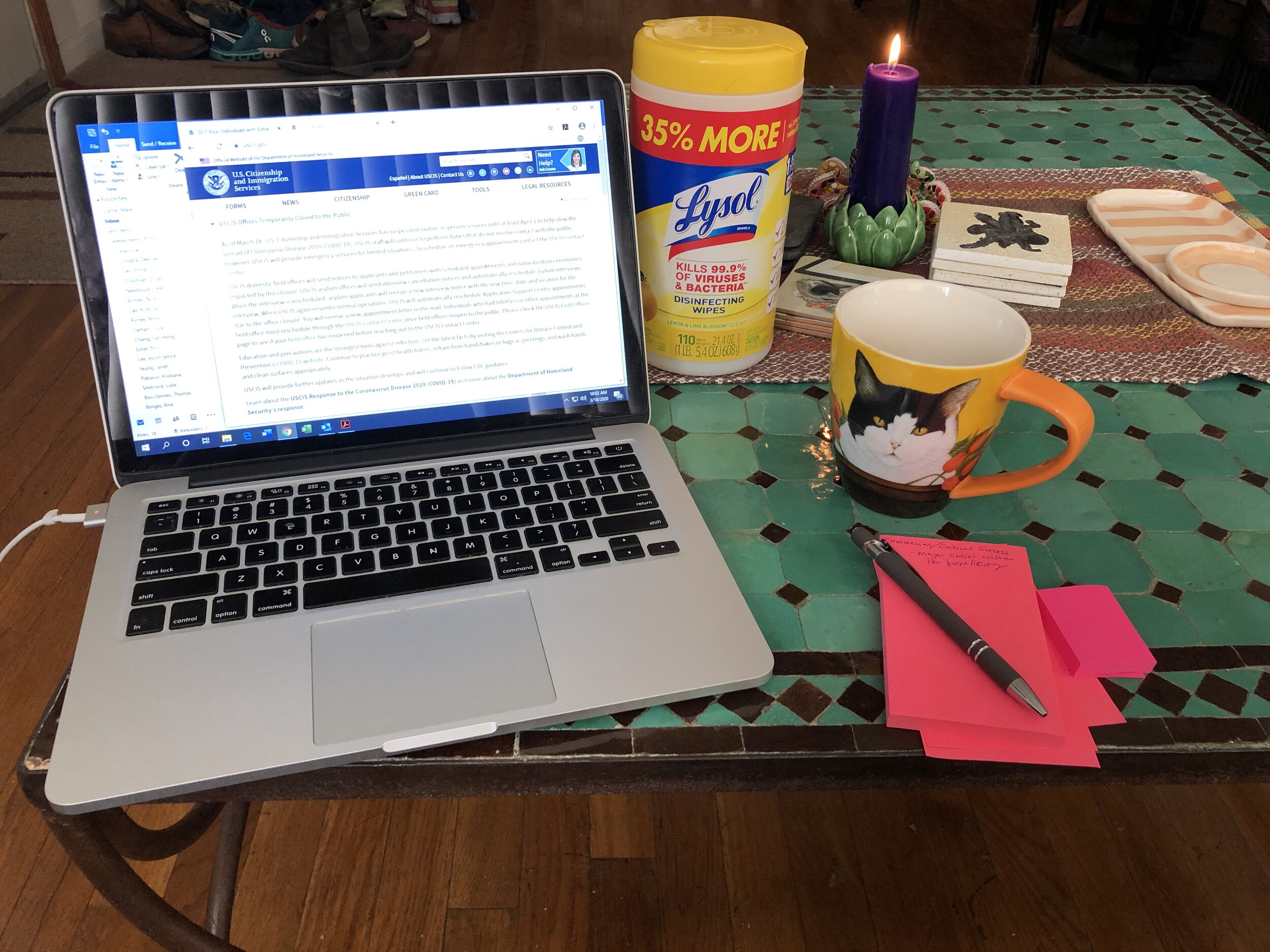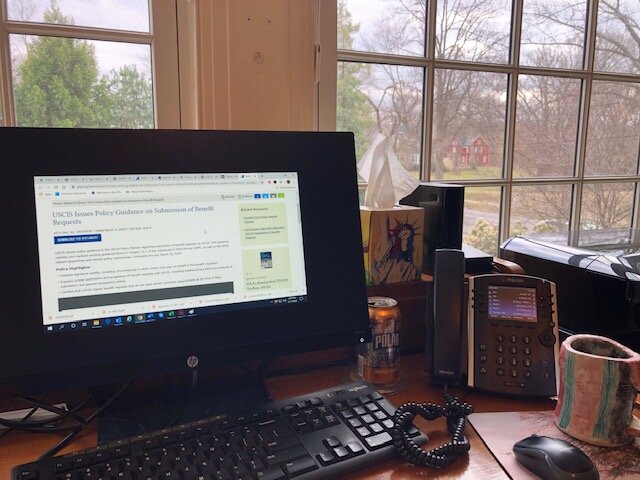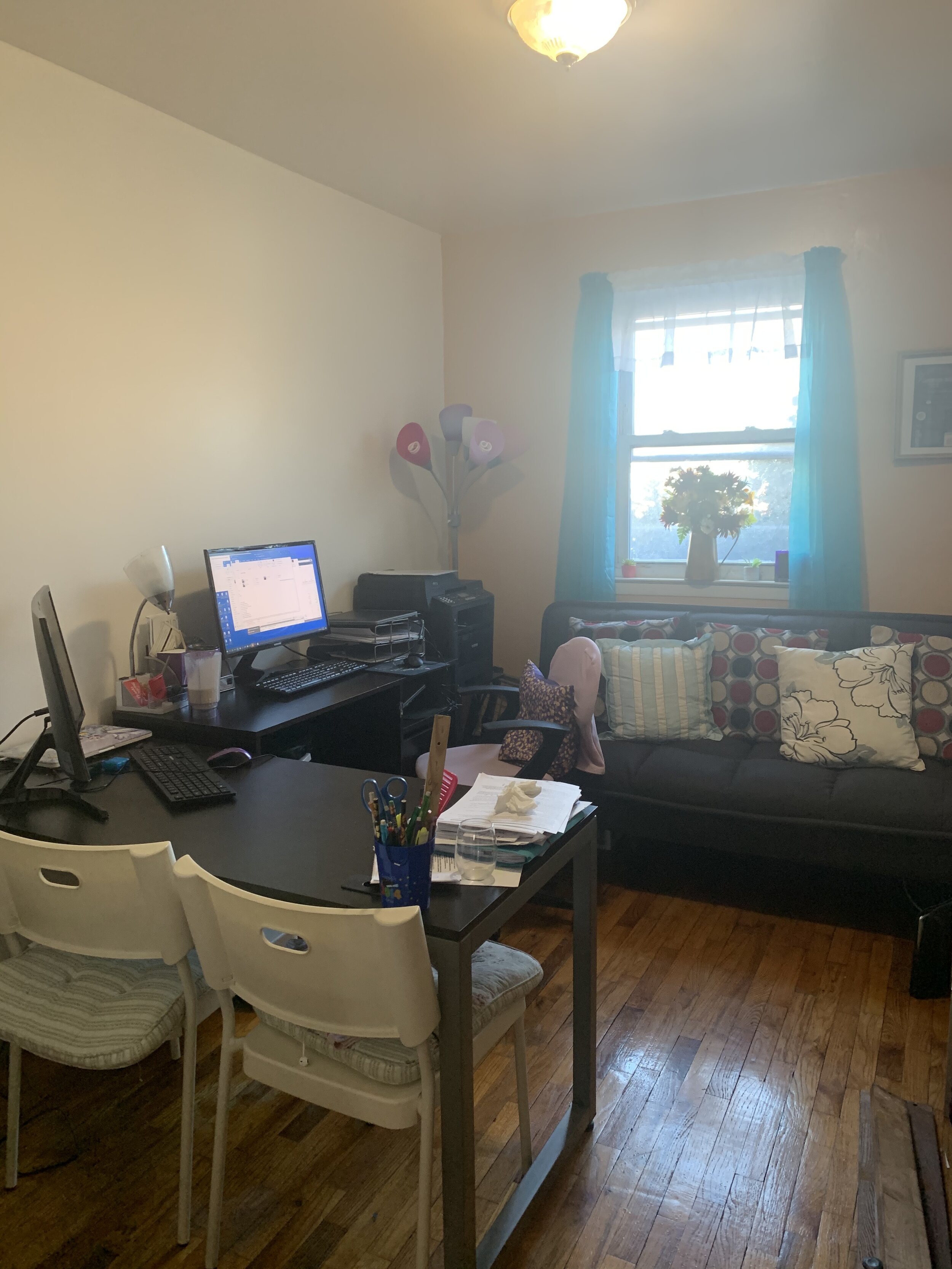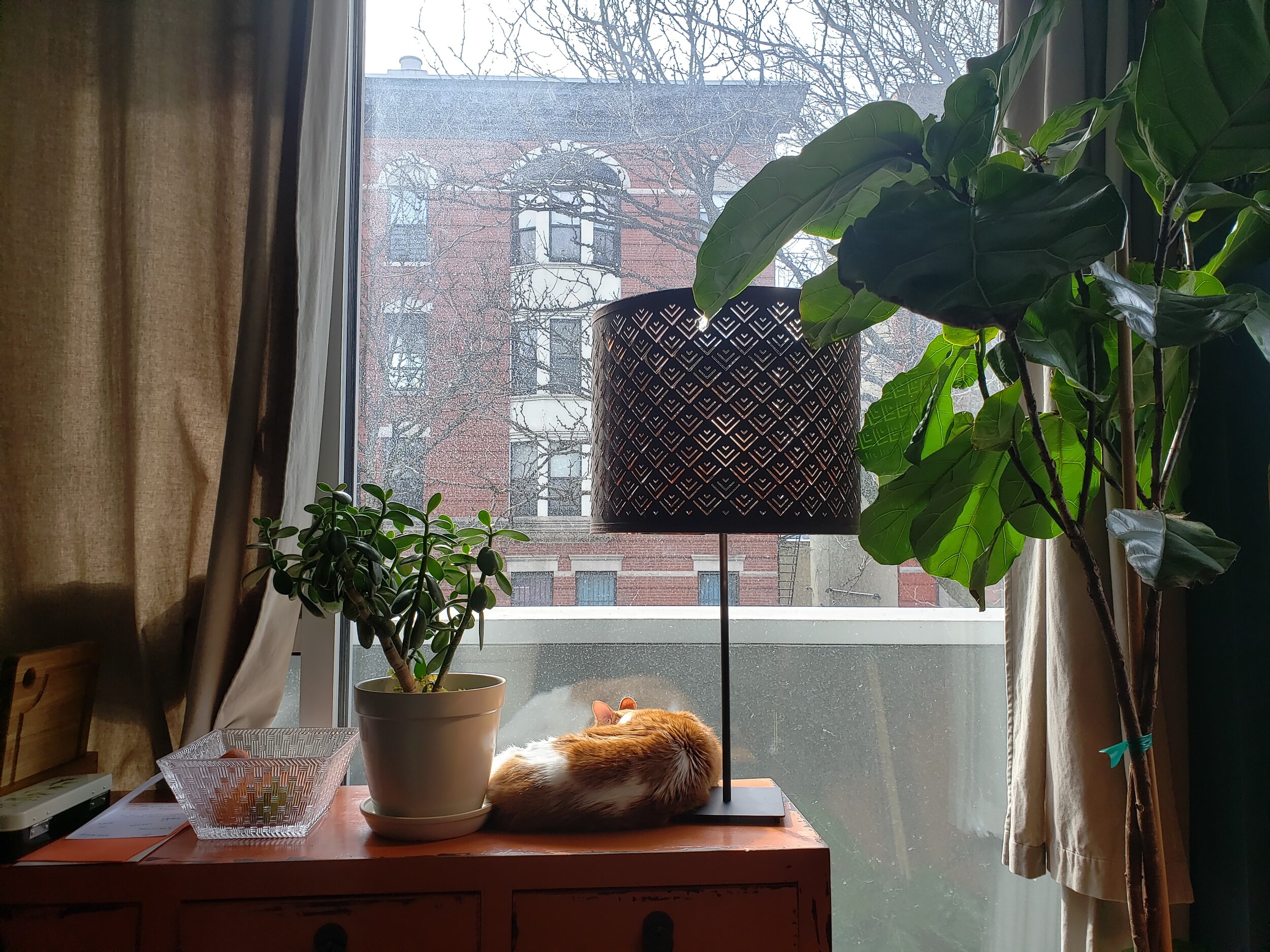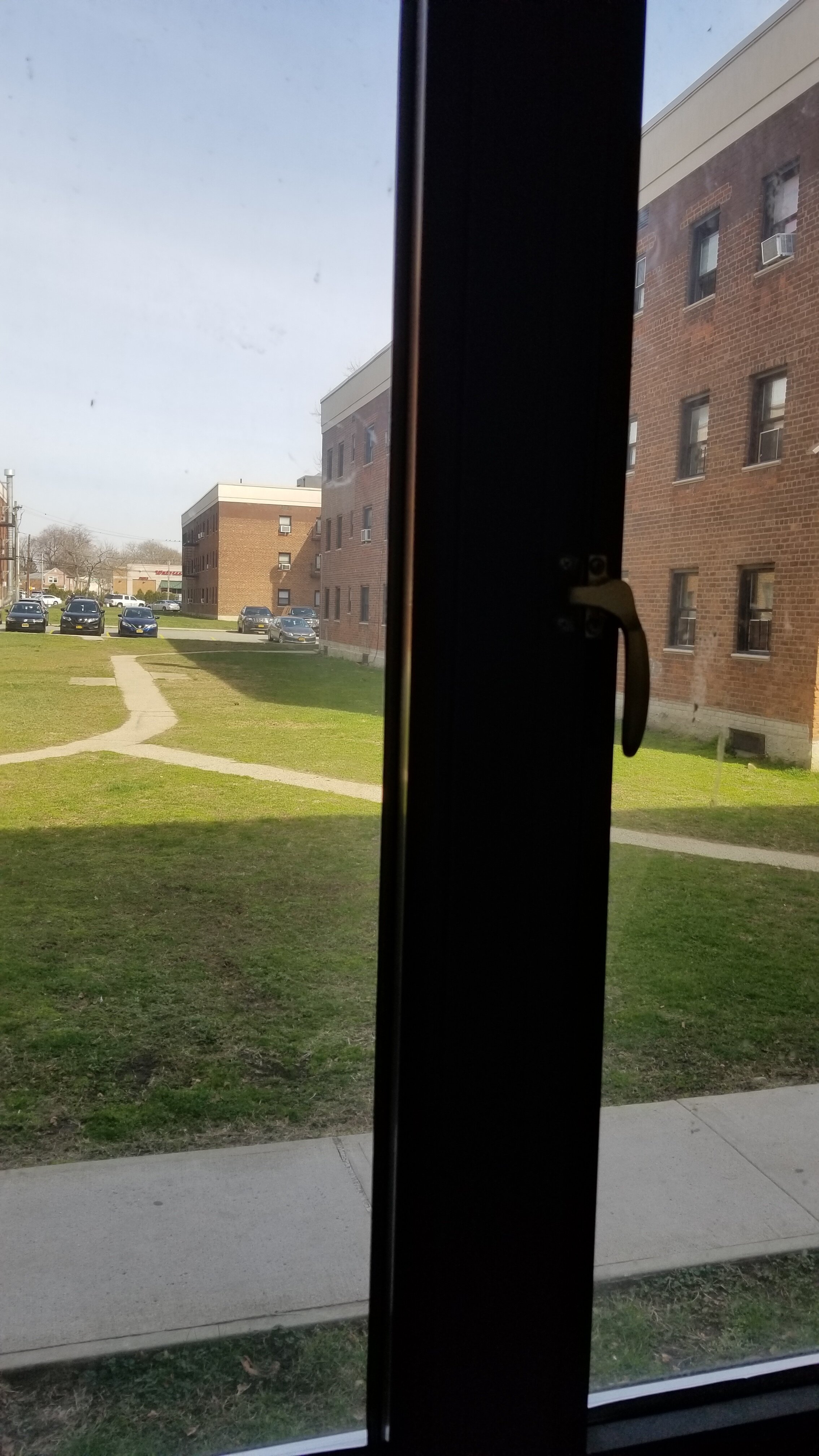UPDATE JULY 20, 2020: US Embassies/Consulates around the world will begin the phased resumption of some routine visa services, with some resuming services as of July 15, 2020.
Many US Embassies and Consulates around the world have canceled routine nonimmigrant and immigrant visa appointments in response to the spread of coronavirus (COVID-19). In this post, we have included cancellation information for select US Embassies and Consulates. The US State Department also has a dedicated page with links to each nation’s US embassy that provides specific information regarding COVID-19 including information regarding health services, recommendations, and, if applicable, notification of the reduction or suspension of visa services. While not every embassy page is updated, many have useful and relevant information for travelers. Additionally, The Gate, a blog focusing on travel, has provided a full list of countries and territories that have travel restrictions as a result of COVID-19.
Argentina
Effective March 16, the US Embassy in Buenos Aires has cancelled routine nonimmigrant visa appointments. They will resume routine visa services as soon as possible. The MRV fee is valid and may be used for a visa application in the country where it was purchased within one year of the date of payment. Travelers who have an urgent matter and need to travel immediately should follow the guidance provided under the “Expedited Appointments” tab on the embassy webpage page to request an emergency appointment.
Canada
Effective March 17, 2020, the US Embassy and all Consulates General in Canada have cancelled all routine nonimmigrant visa appointments. They do not know when they will resume appointments. Travelers who have an urgent matter and need to travel immediately should follow guidance provided at https://ais.usvisa-info.com/en-ca/niv to request an emergency appointment. The Consulate General in Montreal at this time continues to process immigrant visas but depending on staffing capacity and host government restrictions, they may reduce routine immigrant visa appointments, and will notify applicants if necessary to reschedule.
Chile
Nonnimigrant visa processing is suspended effective March 16 through March 31, 2020. Those who have an urgent need to travel immediately should follow guidance provided at https://ais.usvisa-info.com/en-cl/niv/information/faqs#need_earlier_appt to request an emergency appointment.
France
Effective March 16, 2020, the United States Embassy in Paris, France is cancelling routine immigrant and nonimmigrant visa appointments. The embassy will resume these routine visa services as soon as possible but they are unable to provide a specific date at this time. Note that the MRV fee is valid and may be used for a visa application in the country where it was purchased within one year of the date of payment. Applicants who need to travel immediately because of an urgent matter should follow instructions here, or contact fae_contactus+fr+mrv+en@visaops.net or call +33 1 82 88 29 57 (if in France) or +1 703 543 9342 (if in the US), to request an emergency appointment.
Mexico
US Embassy and Consulates in Mexico have indefinitely suspended all nonimmigrant visa and immigrant visa appointments. Biometric appointments will be cancelled via email. Nonimmigrant visa applications will be accepted on a limited basis for emergency travel only and applicants should make the request for an emergency appointment at https://ais.usvisa-info.com/en-MX/niv. For case-specific inquiries for nonimmigrant visas, please contact the Embassy at mx.usembassy.gov/es/visas-es/contactenos-form. For immigrant visa inquiries, applicants can find instructions on how to contact staff at ais.usvisa-info.com/es-mx/iv/information/contact_us.
The Netherlands
The US Consulate Amsterdam will limit consular services as of March 17th, in response to the Dutch Government’s March 15 decree establishing country-wide school and cultural closures to prevent the spread of COVID-19. Consequently, all scheduled regular appointments are cancelled until further notice. Emergency visa processing will continue. For updates on COVID-19 please consult the embassy website and https://www.rivm.nl/en.
United Kingdom
The US Embassy in London is cancelling all nonimmigrant and immigrant visa appointments effective March 17, 2020. The MRV fee is valid and may be used for a visa application in the country where it was purchased within one year of the date of payment. At this time there is no indication when appointments will resume. Applicants who recently had appointments at the Embassy have reported that the consular officer told them the Embassy is not printing visas at this time due to the coronavirus (COVID-19) pandemic.
Switzerland
Effective March 16, 2020, US Embassy Bern has suspended routine consular services. The embassy will also be closed on March 17 and resume limited operations on March 18. Emergency American Citizens Services, including emergency passport issuance, continue to be available. Please visit the embassy website for additional information or to schedule an appointment. The US Consular Agencies in Geneva and Zurich will remain closed effective immediately until further notice.
We will post additional updates as we receive them.



